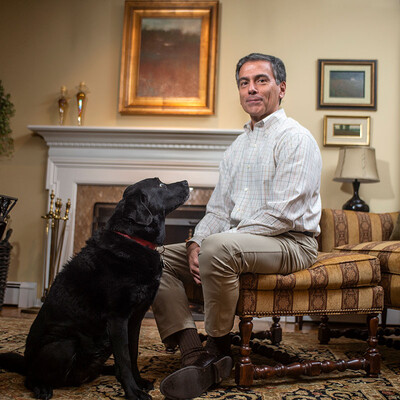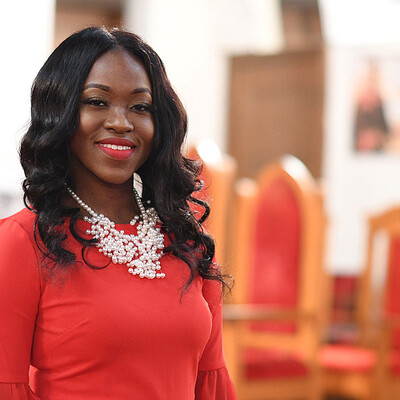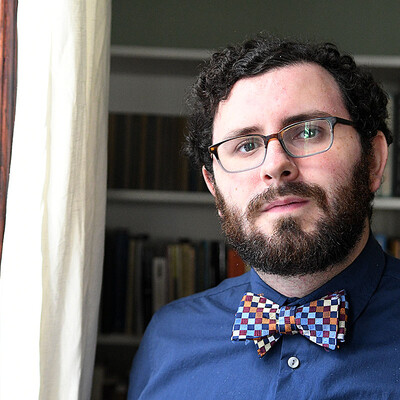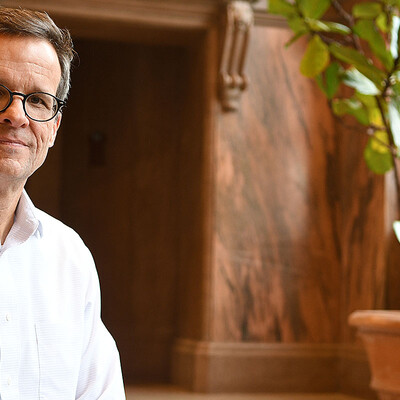The Ten: The Commandments as a moral source code in modern life
Loading...
| Philadelphia
The most famous shalts and shalt-nots, the Ten Commandments can seem sidelined in discussions of modern morality. For years a political lightning rod, and scorned by some as archaic, the Ten Commandments are conspicuously avoided lest they religionize the public square. As Wendy Smith, professor of management at the University of Delaware’s Lerner School of Business, put it, “There’s a huge sense that you don’t talk about religion in the workplace.”
But emerging research links the Commandments – one of the world’s oldest compliance codes – with universally embraced values like generosity and honesty, and suggests that dismissing them may be a mistake.
Why We Wrote This
The Monitor asked ordinary people of faith to share what “The Ten” mean to them personally to shed light on how 21st-century believers find meaning in ancient religious ideas. First in a series.
Ultimately, while the shoulds and oughts can provide a road map, they go only so far in forming moral character, says Robert Louis Wilken, professor emeritus of the history of Christianity at the University of Virginia. Role models – parents, aunts and uncles, adults in the religious community – do the heavy lifting.
“People act on what they’re drawn to, on what they love,” he says. “They see someone who does something good and say, ‘I’d like to be like that.’”
In schools, workplaces, and legislatures, an army of would-be Jiminy Crickets is fast at work targeting bad behavior. If the world’s moral compass sometimes seems askew, these policymakers, administrators, and HR departments have fixes aplenty – seminars and webinars, podcasts and programs, learning modules, curricula, and handbooks. There are ethics codes, integrity tools, anti-corruption protocols and best practices to encourage seemingly no-brainer morals, respect, and personal integrity: Don’t hit on your underlings. Don’t pad the expense account. Don’t bully the kindergartners.
The most famous shalts and shalt-nots, the Ten Commandments, can seem sidelined in all this. For years a political lightning rod, and scorned by some as archaic, the Ten Commandments are conspicuously avoided lest they religionize the public square. As Wendy Smith, professor of management at the University of Delaware’s Lerner School of Business, put it, “There’s a huge sense that you don’t talk about religion in the workplace.”
But emerging research links the Commandments – one of the world’s oldest compliance codes – with universally embraced values like generosity and honesty, and suggests that dismissing them may be a mistake.
Why We Wrote This
The Monitor asked ordinary people of faith to share what “The Ten” mean to them personally to shed light on how 21st-century believers find meaning in ancient religious ideas. First in a series.
In that spirit, the Monitor asked ordinary people of faith who value the Commandments to share what “The Ten” mean to them personally, how they try to apply them in daily life, how they succeed, and how they fail. In the process, we hope to shed light on how 21st-century believers continue to find meaning in ancient religious ideas.
One of those profiled says he found answers while praying in prison. “If I was always good in Your mind I realize there must be a purpose for me,” Desmon “Dez” Rogers says. Once a drug dealer, he began to live, he said, “as if there’s a God.”
Ethics as a core concept
Secular ethics education became a “core concept” in business school education in the 1990s, and developed into a compartmentalized field of study on its own, “like accounting,” according to Professor Smith, who is also an Academy of Management scholar. Now, corporate decision-making is under the lens, as vocal millennials push employers on issues such as sustainability, immigration, and the environment. Investors aim not only to meet their own environmental, social, and governance criteria, but to demonstrate positive-impact choices.
Whether received as essential guidance, cynical window dressing, or overly controlling interference, the demand for compliance – along with its correlate, transparency – guards the door to institutional and community life now: “Submit to tobacco screening if you want to work for us.” “Conform to U.N. principles if you want me to work for you.” “Drop your energy source if you want me to buy from you.”
But is compliance possible in spirit, not just in metrics? Observers warn that a band-aid regulatory approach to the #outrage of the day may quell the Twitter roar, but can’t possibly address every moral contingency. Some suggest a refocus on the foundational principles of personal morality, such as the Commandments, as a more effective course.
“Transparency and integrity are opposites,” says Hugh Whelchel, executive director of the Institute for Faith, Work and Economics in McLean, Virginia. “If I don’t trust you, I want to see what you are doing. But you can’t watch someone 24/7.”
Moral codes and personal growth
Data show a clear correlation between religious behavior, such as prayer and worship, and behavior considered to be virtuous, like frequent volunteering and giving to charity, according to Christian B. Miller, Wake Forest University professor of philosophy and author of the book “Character Gap. How Good Are We?” And familiarity with moral codes like the Commandments and the Golden Rule are associated with lower incidence of cheating in all areas of life.
While the Ten’s checklist may not seem to inspire sophisticated moral questioning the way a more nuanced approach would, a serious grappling allows room for personal growth and social consciousness. Is the “bearing false witness” injunction limited to courtroom testimony, for example? Or should it also stop you from reposting a smear just because it advances your political cause?
Research shows that, during periods of serious moral choice, adults tend to reflect back on Sunday school-type concepts, says Charles Kalish, director for science at the Society for Research in Child Development. “This is when instruction in moral codes like the Ten Commandments becomes important: ‘Now I have the resources to help me think through this,’” he says. “They help you articulate a justification for moral behavior.”
Though church attendance is in decline, that doesn’t mean the United States is a nation of unbelievers. In fact, according to a 2016 Gallup poll, 89% of Americans said they believe in God. And Commandment-codified values in law and commerce have long anchored community life. Since before Moses brought them down from Mount Sinai, many of the famous “shalt-nots” so central to Christians and Jews were promoted by ancient Greeks, and today permeate much of Eastern and Western religion, as well as secular society.
The injunction against stealing, for example, forms the basis of property rights, says Mr. Whelchel. “If someone says they want to take your laptop, what do you automatically say? ‘No you can’t have my laptop. It’s mine.’” So, too, integrity. Who among us doesn’t covet his neighbor’s honest auto mechanic? Beyond that, the Commandments point the way toward essential virtues like truthfulness, integrity, respect, fidelity, and compassion.
All moral training – whether labeled as secular or not – rests on a specific philosophy, says Christian Smith, professor of sociology at the University of Notre Dame. Do only the consequences of actions matter? Is fairness the chief motivator? Minimizing suffering? Can humans left to their own devices generally be trusted to choose good?
Professor Smith is skeptical of the increasingly popular “character movement” in education, he said, because its underlying philosophy is not clear. Eventually, kids want to know why they should do what they’re asked to do. “It’s hard to take those [religious] ethics and translate them into neutral terms and have them stick too long.” While some of the Commandments (like “Thou shalt not kill”) are obvious, others are more subjective. Consider No. 10, he says. Without the religious take on coveting, when a child asks “why should I be happy with what I have?” there’s not necessarily anything to tell him.
Ultimately, while the shoulds and oughts can provide a road map, they go only so far in forming moral character, says Robert Louis Wilken, professor emeritus of the history of Christianity at the University of Virginia. Role models – parents, aunts and uncles, adults within the religious community – do the heavy lifting. “People act on what they’re drawn to, on what they love,” he says. “They see someone who does something good and say, ‘I’d like to be like that.’”
Part 1: The Commandments as a moral source code in modern life
Part 2: How does the First Commandment fit in today?
Part 3: ‘I have to have humility’: How Second Commandment helped man find freedom
Part 4: One woman embraces Third Commandment in feeding 1,600 at Thanksgiving
Part 5: ‘Remember the sabbath’: How one family lives the Fourth Commandment
Part 6: ‘Growing up is hard’: How Fifth Commandment guided a child during divorce
Part 7: Is saying ‘I’d kill for those shoes’ OK? One woman and Sixth Commandment.
Part 8: Is chastity old-fashioned? An NFL veteran’s take on Seventh Commandment.
Part 9: ‘Thou shalt not steal’: Even someone else’s joy, says one educator
Part 10: ‘Thou shalt not bear false witness’: Ninth Commandment goes to Princeton
Part 11: Jealousy at Ivy League level: How a law professor views Tenth Commandment



















